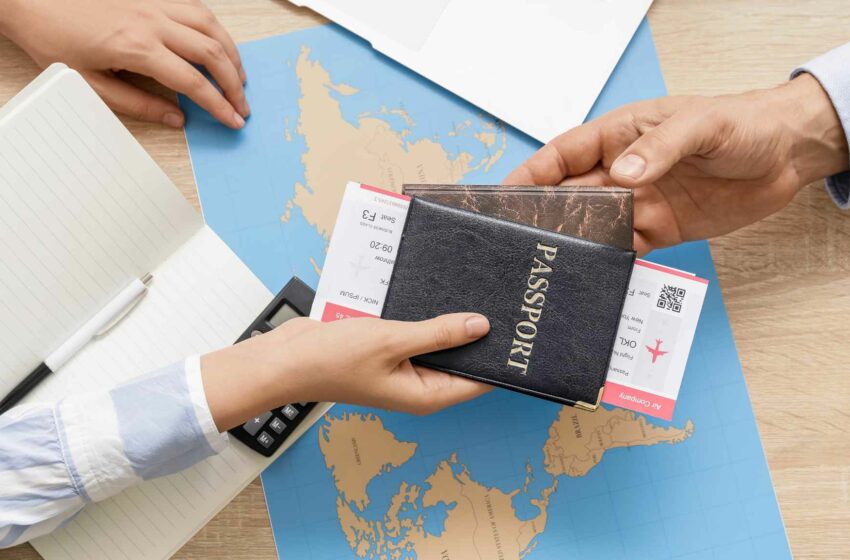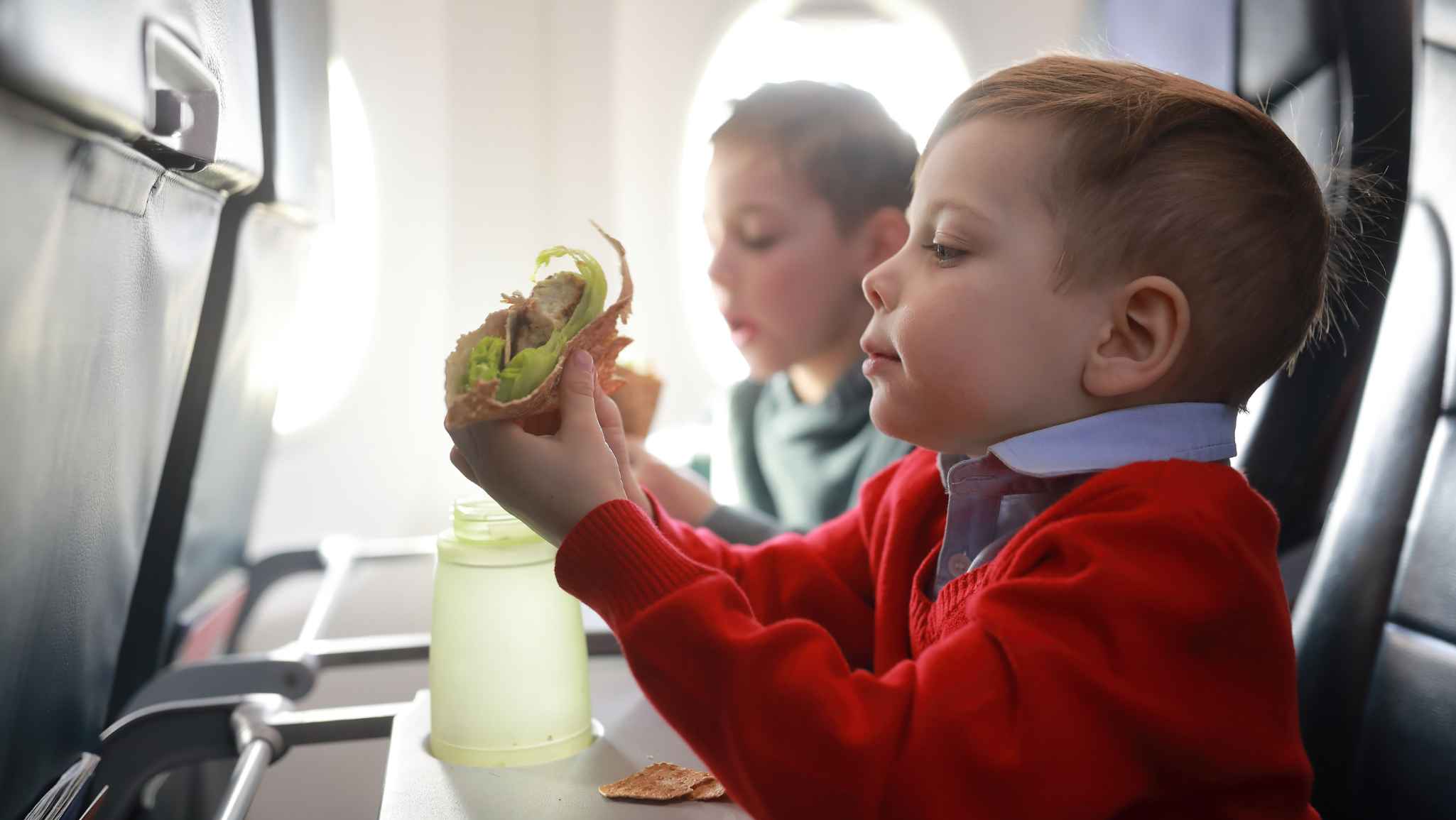
How to Apply For Travel Documents For Children Without Parents
To ensure your child can travel without parents, you need to provide certain documents. In order to complete the application process for travel documents with ease, this section covers everything you need to know about the documents required for a child to travel without parents. We will briefly introduce the sub-sections, which include passport information, visa requirements (if applicable), consent letters from non-accompanying parents, and birth certificates or other identification documents.
What Documents Does a Child Need to Travel Without Parents
For a minor to travel without parents, they require specific documents. A necessary document is a Travel Document, which proves the child’s identity and citizenship.
Below is a table outlining further details about the required Travel Document:
| Type of Document | Validity |
| Passport | Must be valid for at least six months beyond the date of entry, with blank pages for visa stamping |
| Travel Document issued by the Government | Entry requirements and validity may vary depending on the destination country |
It’s important to note that there may be additional requirements depending on the destination country. It’s advised to check with the embassy or consulate beforehand.
When traveling internationally, both parents may also need to provide written consent for their child to travel alone. This can be in the form of a notarized letter or other legal documentation.
A true fact is that according to Forbes, as of June 2021, only 11 countries allow minors to enter without parental consent or supervision.
Pack your bags and your patience, because getting a visa for your child is like trying to navigate a maze with a blindfold on.
Visa (If Applicable)
It is crucial to note that a child may require a visa (if it applies) to travel without their parents or legal guardians. The requirements and process of obtaining a visa for a child traveling alone vary depending on the destination country. Some countries might not require a visa, while some may need the child to apply for one in advance or obtain it on arrival.
When applying for a visa, most countries require documents such as parental consent letters, copies of valid passports, and birth certificates. Additionally, organizations like schools or tour agencies might also be required to provide relevant documents for the child’s travel arrangements. It is essential to research and understand the specific requirements before commencing the application process.
Furthermore, some countries have strict rules around children entering or leaving their borders without parental consent, so it is essential to ensure all necessary documentation is available before traveling. Travelers should also seek advice from their embassy regarding any additional requirements they need to fulfill.
When traveling with minors, some experts suggest carrying an authorization letter signed by both parents or legal guardians stating that they permit their child to travel unaccompanied. The letter should include details like trip duration, contact information of parents or guardians, and details of adult supervision during the trip. This approach helps avoid misunderstandings with border officials regarding parental consent.
In summary, if traveling with children who aren’t accompanied by their parents or guardians, check if your destination requires visas for minors and obtain all required documentation beforehand. Always seek advice from your embassy regarding other necessary permits. To avoid complications at the border points in international travels, carrying an authorization letter can help explain children’s travel arrangements clearly emphasising parental consent and adult supervision where applicable.
If your child needs a consent letter from a non-accompanying parent, just tell them it’s like a permission slip for a really boring field trip.
Consent Letter from Non-Accompanying Parent(s)
If a child is traveling without parents or a legal guardian, a consent letter from the non-accompanying parent(s) may be necessary. The letter should include authorization for the child to travel and contact information of both parents. This ensures that the safety and well-being of the child are taken into account.
The consent letter is an important document that must be signed by the non-accompanying parent(s) in front of a notary public or authorized official. The letter must also state the duration of the trip, destination details, and purpose of travel. This information is scrutinized by immigration officials to prevent human trafficking.
It is advisable to provide a copy of the child’s birth certificate or another government-issued identification document along with the consent letter. As every country has different requirements, it’s essential to check with airlines or relevant authorities regarding additional documents required.
Don’t leave preparing this documentation until the last minute as it may delay travel plans for your child. Take note that some countries may require additional documentation apart from what has been mentioned above.
Make sure all necessary paperwork is in order before your child travels solo or with someone other than you. It’s better to be over-prepared than have your young traveler’s journey disrupted because of missing documents!
Make sure your child’s birth certificate doesn’t list them as a demon spawn if you want their solo travel plans to go smoothly!
Birth Certificate or other Identification Documents
To travel without parents, a child must provide legal proof of identification such as a birth certificate or other relevant documents. These documents act as the primary source for verifying the consent provided by the parent or guardian. The identification documents help in ensuring the safety and protection of the child during travel.
It is essential to have all necessary identification documents ready before traveling. Other relevant IDs for children include a passport, visa, identity cards etc. In some cases, it may be mandatory to carry additional documentation with regards to custody agreements and parental authorization. Different countries may have varying regulations, so one must consult with embassy officials or consular services before finalizing any travel arrangements.
Parents should consider providing legal consent forms to ensure that their child is permitted to travel without any obstacles and unnecessary delays at customs control points. Additionally, it is advised to teach children basic safety measures while traveling solo such as seeking help from authorized official authorities if they feel unsafe or lost.
In order to ensure safe travels for a child, besides proper documentation, parents should also inform themselves regarding potential airline protocols related to unaccompanied minors while flying without them. From booking flights too preferred seat preferences during air-travel and other arrangements will need precise attention towards detail. Proper preparation ensures smooth travel experiences for both unaccompanied minors and their guardians.
Getting travel documents for your child is easier than getting them to eat their vegetables without a fuss.
Applying For Travel Documents For Children Without Parents
To apply for travel documents for children without parents (what documents does a child need to travel without parents), you need to know the process of applying for the documents. Contacting the embassy or consulate, completing necessary forms and providing required documents, paying applicable fees, scheduling an appointment, and submitting the application are the sub-sections that can help you understand and navigate the process with ease.
Contacting the Embassy or Consulate
When seeking travel documents for children without parents, it is crucial to contact the relevant embassy or consulate in a timely and efficient manner. This can be done via email, phone or by visiting the embassy’s website. It is important to note that different embassies may have varying requirements for documentation and processing times, so it is essential to do thorough research before reaching out.
Once you have made contact with the embassy or consulate, they will likely require various documents to process the application, such as proof of identity, a travel itinerary, and parental consent forms. It is vital to ensure that all necessary documentation is provided promptly and accurately to avoid delays or rejections. Parents or guardians should also prepare their children for any required medical examinations or interviews that may take place during the application process.
Keep in mind that obtaining travel documents for children without parents can be a lengthy and challenging process, especially if there are extenuating circumstances involved. However, there are legal experts and immigration attorneys who specialize in this area and can provide invaluable advice and support throughout the process. Seeking out professional assistance can help streamline the application procedure while ensuring that all necessary steps are taken into consideration.
Get ready to channel your inner detective and play a riveting game of ‘Find the Birth Certificate’.
Completing Necessary forms and Providing Required Documents
To properly apply for travel documents for children without their parents, it is important to ensure that the required forms are completed accurately and all necessary documents are provided. Here are some key points:
- Complete the Child Passport Application Form, ensuring all fields are filled correctly and signed by both parents or legal guardians.
- If one parent cannot be present, provide a notarized Statement of Consent from the absent parent.
- Provide proof of the child’s citizenship through either a birth certificate or naturalization certificate.
- Bring two identical passport photos of the child, taken within six months of application.
- Pay the appropriate fee for the requested travel document.
It should also be noted that additional documentation may be required depending on specific circumstances such as divorced or separated parents, orphaned children, or children traveling with non-parental guardians.
It is important to carefully read and follow all instructions provided by the issuing agency to ensure a smooth and successful application process.
In practice, we had a client who was applying for a passport for her niece who was in her care due to unforeseen circumstances. We were able to assist her in completing all necessary forms and providing required documents such as a consent letter from the biological parents. The passport was successfully issued and our client was able to travel internationally with her niece without any issues.
Give your wallet a vacation too, by paying the applicable fees for your child’s travel documents without parental supervision.
Paying Applicable Fees
The travel documents for children without parents come with applicable fees which must be paid beforehand. To ensure the application process is smooth and timely, it is important to understand the fee structure and payment options. The fees may vary based on the type of travel document applied for, age of the child, and urgency of processing.
It is recommended to check the government website or speak with a travel document advisor to confirm the correct fee amount. You may also pay online or in person at authorized payment centers. Keep in mind that some payment methods may have additional charges.
If you are applying for multiple children, each child’s applicable fee must be paid separately. In addition, ensure you provide accurate information during payment as errors may lead to additional charges or delays in processing.
Pro Tip: Make sure you keep a record of your payment receipt as proof of payment during the application process.
Don’t worry, scheduling an appointment to apply for travel documents for your little ones is easier than finding a babysitter on a Saturday night.
Scheduling an Appointment and Submitting the Application
To process travel documents for children without parents, you need to book an appointment and submit the application. Here’s how to do it:
- First, visit the embassy website or consulate office for information on requirements and fees.
- Next, schedule an appointment by filling out an online form or calling the embassy/consulate office.
- Then, gather all necessary documents, including the child’s birth certificate and legal guardianship papers.
- Finally, submit the application in person at the embassy/consulate during your scheduled appointment.
It’s important to note that processing times may vary depending on the embassy/consulate and any additional review required.
When preparing documents for travel documents for children without parents, ensure that they are valid. Also ensure that there is no issue when processing takes place.
A few years ago, a couple planned a family vacation overseas but realized too late that their 16-year-old son needed a passport instead of just a regular ID. They quickly made an appointment at the closest consulate office and submitted their application. Fortunately, they were able to receive their son’s passport in time for their trip.
Traveling with children without parents? Just don’t forget their travel documents, or you’ll have more problems than a lost pacifier.
Tips For Traveling With Children Without Parents
To ensure your child’s safe and comfortable travel experience without their parents, follow these tips for traveling with children. Packing the necessary items and documentation, communicating with airline and airport officials, and planning for immigration and customs processes are just some of the sub-sections that will help you prepare for a stress-free journey.
Ensuring the Child’s Safety and Comfort
To make sure your child is safe and comfortable while traveling without parents, a few precautions can be taken. Ensure the chosen mode of transportation is safe and reliable. Choose seats closer to the exits or front of the vehicle so that it’s easier to reach the child in case of an emergency. Additionally, educate the child about personal safety, such as staying close to trustworthy adult figures.
When packing, include items like a light blanket, earplugs and a travel pillow for added comfort. Assign age-appropriate tasks like carrying a backpack or keeping track of important documents for the child’s involvement and sense of responsibility. Lastly, invest in insurance policies designed for solo travelers under 18 that cover medical emergencies and provide safety measures at their destination.
Don’t forget to pack your kid’s birth certificate – because you never know when you might need to prove you’re not kidnapping them.
Packing Necessary Items and Documentation
When traveling with children without parents, it is essential to pack all necessary items and documentation to ensure a smooth trip. Here are some crucial tips:
- First and foremost, make sure your child has identification documents such as a passport or birth certificate.
- Pack a list of emergency contacts, including the parents’ contact information, in case of unexpected events.
- Bring necessary medications and allergy information in case of emergencies.
- It is recommended to carry extra copies of travel documents in case of loss or theft.
In addition, it is important to note that different countries have varying requirements for traveling minors. Therefore, research the specific regulations for your destination before departure.
A source from the US Department of State reports that “over 2,000 American children are reported missing each day,” emphasizing the importance of proactive measures taken when traveling with children without parents.
If you think the TSA is strict with liquids, wait until you try to sneak a toddler’s juice box past them.
Communicating with Airline and Airport Officials
Ensuring smooth communication with airport and airline authorities is crucial when traveling with unaccompanied children. It is paramount to use concise and informative language to convey important details such as flight times, guardians’ contact information, and other relevant information necessary for the safe transit of minors.
Furthermore, it’s essential to clarify any doubts before leaving the child in the care of staff members and establish clear lines of communication throughout the journey. In case of delays or cancellations, ensure that you’re informed and your child’s wellbeing is being taken care of effectively.
Lastly, it’s advisable to keep calm and maintain a professional demeanor while communicating with officials for efficient handling of potential issues.
Pro Tip: Always carry relevant identification documents for both the child and accompanying adult for a hassle-free travel experience.
Immigration and customs can be a real trip- luckily, not the kind that involves screaming toddlers and lost passports.
Planning for Immigration and Customs Processes
Before traveling with children without parents, it is essential to plan for the various immigration and customs processes that will be encountered. To ensure a smooth journey, consider carrying all the necessary documents, such as passports, visas, and birth certificates for children. To reduce waiting times at immigration points, consider using fast-track options or apply for pre-clearance programs where available.
Moreover, familiarize yourself with customs regulations at your destination country. Some countries have strict regulations on what can be brought in or taken out, including specific food items and medication. To avoid any issues, research beforehand or consult relevant authorities.
Additionally, ensure that your children carry identification tags with their name and contact information while traveling to enable easy tracking should they wander off.
Finally, always keep copies of important documents such as travel insurance policies and emergency contacts in a secure place accessible only by authorized persons. This will help mitigate unforeseeable circumstances that may disrupt your travel plans.